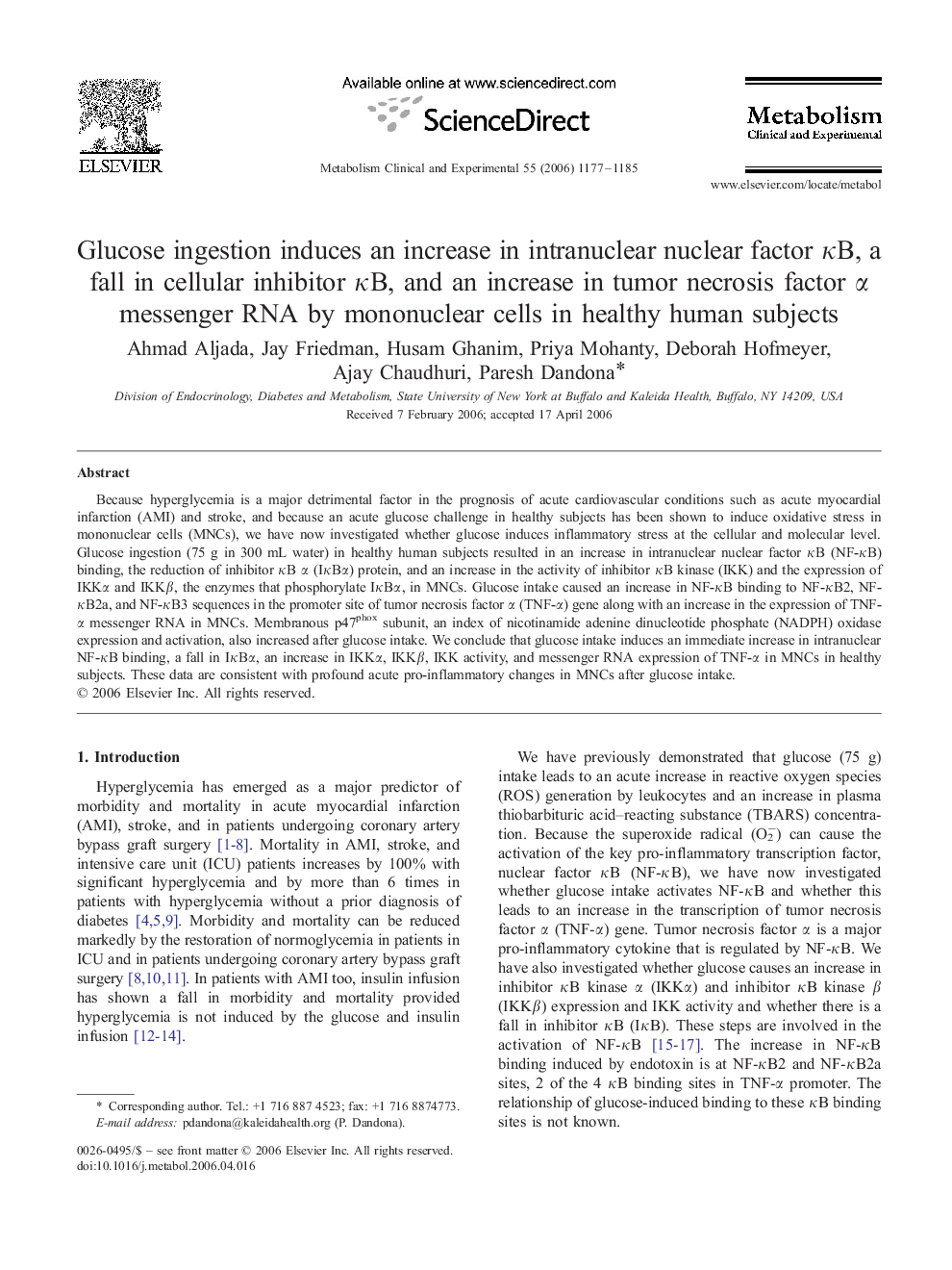| کد مقاله | کد نشریه | سال انتشار | مقاله انگلیسی | نسخه تمام متن |
|---|---|---|---|---|
| 2807622 | 1157179 | 2006 | 9 صفحه PDF | دانلود رایگان |

Because hyperglycemia is a major detrimental factor in the prognosis of acute cardiovascular conditions such as acute myocardial infarction (AMI) and stroke, and because an acute glucose challenge in healthy subjects has been shown to induce oxidative stress in mononuclear cells (MNCs), we have now investigated whether glucose induces inflammatory stress at the cellular and molecular level. Glucose ingestion (75 g in 300 mL water) in healthy human subjects resulted in an increase in intranuclear nuclear factor κB (NF-κB) binding, the reduction of inhibitor κB α (IκBα) protein, and an increase in the activity of inhibitor κB kinase (IKK) and the expression of IKKα and IKKβ, the enzymes that phosphorylate IκBα, in MNCs. Glucose intake caused an increase in NF-κB binding to NF-κB2, NF-κB2a, and NF-κB3 sequences in the promoter site of tumor necrosis factor α (TNF-α) gene along with an increase in the expression of TNF-α messenger RNA in MNCs. Membranous p47phox subunit, an index of nicotinamide adenine dinucleotide phosphate (NADPH) oxidase expression and activation, also increased after glucose intake. We conclude that glucose intake induces an immediate increase in intranuclear NF-κB binding, a fall in IκBα, an increase in IKKα, IKKβ, IKK activity, and messenger RNA expression of TNF-α in MNCs in healthy subjects. These data are consistent with profound acute pro-inflammatory changes in MNCs after glucose intake.
Journal: Metabolism - Volume 55, Issue 9, September 2006, Pages 1177–1185